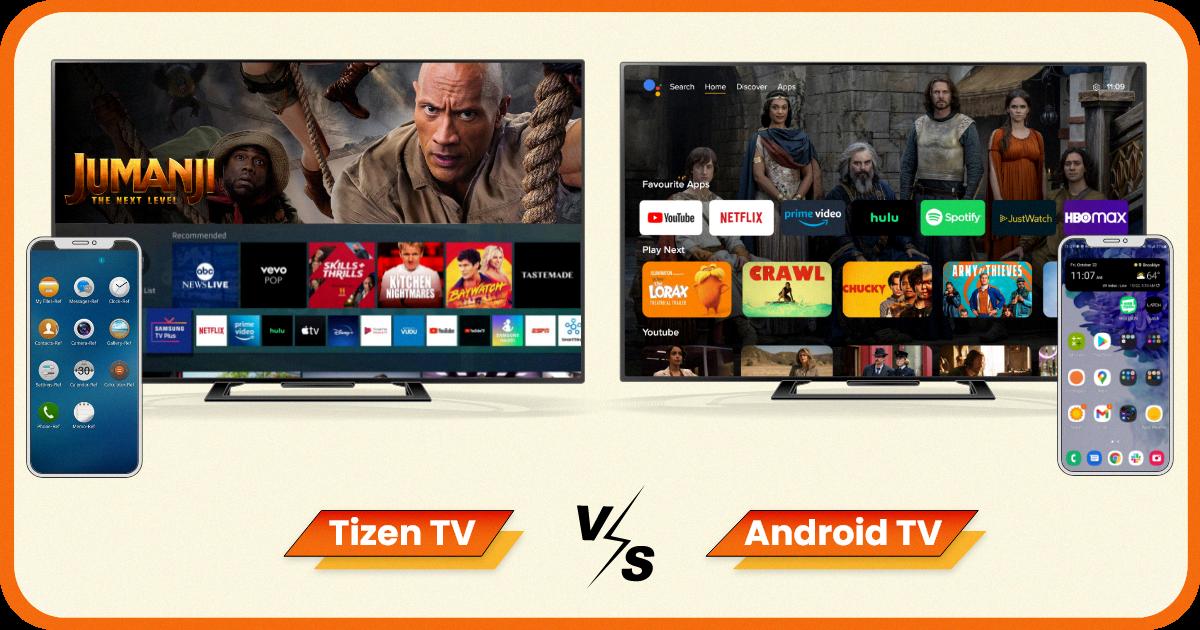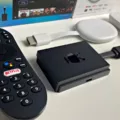Operating systems are an integral part of any electronic device, including smartphones, tablets, and even smart TVs. They control the software and hardware components, ensuring that everything runs smoothly and efficiently. One popular operating system that has gained a lot of attention in recent years is Tizen OS.
Tizen OS is a Linux-based operating system developed by Samsung and the Linux Foundation. It was initially created for smartphones but has since expanded to other devices, including smart TVs. Tizen OS offers a range of benefits over other operating systems, such as Android.
One notable advantage of Tizen OS is its speed and performance. Tizen OS is lighter in weight compared to Android, meaning it requires fewer resources to run. As a result, devices running Tizen OS, including smart TVs, can start up faster and perform tasks more efficiently. This speed and performance enhancement can greatly enhance the overall user experience.
Another area where Tizen OS shines is picture quality. Tizen OS is designed to work seamlessly with the hardware of Samsung smart TVs, resulting in superior picture quality. Whether you’re watching movies, playing games, or streaming content, Tizen OS ensures that you get the best possible visual experience.
However, it’s important to note that Tizen OS does have its limitations. One such limitation is the inability to install third-party apps freely. Unlike Android, which allows users to install apps from various sources, Tizen OS restricts app installations to Samsung’s app store. While this may limit the options available to users, it also ensures that apps are thoroughly vetted and secure.
On the other hand, Android OS offers a more open ecosystem when it comes to app installations. Users have the freedom to install apps from various sources, including third-party app stores and direct downloads. This flexibility allows users to customize their devices and access a wider range of apps.
Additionally, Android OS has a larger app library compared to Tizen OS. The Google Play Store offers millions of apps in various categories, catering to a diverse range of interests and needs. This extensive app library provides users with a wealth of choices and the ability to find apps that suit their preferences.
In terms of hardware compatibility, Android OS has the advantage of being available on a wide range of devices from different manufacturers. This means that users have more options when it comes to choosing a device that meets their specific needs and budget. Tizen OS, on the other hand, is primarily found on Samsung devices, limiting the choices available to users.
Both Tizen OS and Android OS have their own strengths and weaknesses. Tizen OS offers faster performance and superior picture quality, especially on Samsung smart TVs. However, it restricts app installations to Samsung’s app store. On the other hand, Android OS provides a more open ecosystem, with a larger app library and compatibility with a wide range of devices. Ultimately, the choice between the two depends on the user’s preferences and priorities.
Can I Change My Tizen OS To Android?
Once a Galaxy Gear device has been changed to Tizen OS, it cannot be reverted back to the previous Android version. This means that once you have updated your Galaxy Gear device to Tizen OS, you will not be able to change it back to the Android operating system.
To update your Galaxy Gear device to Tizen OS, you can use the “KIES” tool. This tool allows you to update your device’s operating system to Tizen OS, but it does not provide an option to revert back to Android.
It is important to note that once you have updated to Tizen OS, you will not be able to go back to the previous Android version. Therefore, it is recommended to carefully consider your decision before proceeding with the update.
Changing Tizen OS to Android is not possible once the update has been made. It is recommended to use the “KIES” tool to update to Tizen OS if desired, but be aware that there is no option to revert back to Android once the update is complete.

Can You Install Android Apps On Tizen OS?
You cannot directly install Android apps on Tizen OS. Tizen OS is a different operating system developed by Samsung, while Android apps are designed to run on devices using the Android operating system.
However, there are a few workarounds that can allow you to run Android apps on Tizen OS devices, but they are not straightforward and may not work for all apps:
1. ACL for Tizen: ACL (Application Compatibility Layer) for Tizen is a software package that enables certain Android apps to run on Tizen OS. It acts as a compatibility layer between the two operating systems. However, not all Android apps are compatible with ACL, and performance can vary.
2. OpenMobile ACL: OpenMobile ACL is another solution similar to ACL for Tizen. It aims to provide Android app compatibility on Tizen devices. It allows you to download and install Android apps through the Tizen Store, but again, not all apps may be compatible or work optimally.
3. Third-party app stores: Some third-party app stores claim to offer Android apps that can be installed on Tizen OS. However, these stores are not officially supported by Samsung and may not provide a reliable or safe experience.
It’s important to note that these workarounds may not be officially supported by Samsung and can have limitations and potential security risks. It’s always recommended to use apps from official and trusted sources to ensure a safe and reliable experience on your Tizen OS device.
Can I Install Android TV On Samsung Smart TV?
It is not possible to install Android TV on a Samsung Smart TV. The hardware and software of the TV are specifically designed to work with Tizen, which is Samsung’s own operating system for their smart TVs. Installing a different operating system, such as Android TV, is not supported by Samsung.
Which Is Better In Tizen OS Or Android TV?
When comparing Tizen OS and Android TV, there are several factors to consider in determining which is better. Tizen OS is known for its faster start-up time and overall lighter weight, making it a more efficient option for users. On the other hand, Android TV is a popular platform with a vast ecosystem and a wide range of apps available.
Here are some key points to consider when comparing Tizen OS and Android TV:
1. Performance: Tizen OS is designed to be faster during start-up due to its lightweight nature. This means that users can quickly access their favorite apps and content without experiencing significant delays. Android TV, on the other hand, may take a bit longer to start up due to its more extensive ecosystem and app support.
2. Processor: Tizen OS comes with a 64-bit processor, which provides improved performance and efficiency. In contrast, Android TVs currently do not offer a 64-bit processor option, giving Tizen an edge in terms of processing power.
3. Picture Quality: Tizen OS is known for its excellent picture quality, offering vibrant colors and sharp images. This is particularly important for television viewing, as it enhances the overall viewing experience. While Android TV also delivers good picture quality, Tizen OS has been praised for its superior visual performance.
4. App Availability: Android TV boasts a vast ecosystem of apps, with a wide range of options available for users. This means that Android TV users have access to a plethora of streaming services, games, and other applications. Tizen OS, while growing, may have a more limited selection of apps compared to Android TV.
To summarize, Tizen OS offers faster start-up times, a 64-bit processor, and excellent picture quality, making it a strong contender in the smart TV market. However, Android TV has a larger app ecosystem and offers a broader range of options for users. The choice between Tizen OS and Android TV ultimately depends on individual preferences and priorities.
Conclusion
The operating system plays a crucial role in the performance and functionality of a device like a smart TV. While Android and Tizen are both popular operating systems, Tizen offers some distinct advantages. Tizen is known for its faster start-up time and lighter weight, which results in a smoother and more efficient user experience. Additionally, Tizen is equipped with a 64-bit processor, providing better processing power and performance compared to Android TVs. Furthermore, Tizen offers superior picture quality, enhancing the overall viewing experience. However, it’s important to note that Samsung Smart TVs are specifically designed to work with Tizen, and installing a different operating system is not supported by Samsung. Therefore, users should carefully consider their options and choose the operating system that best meets their needs and preferences.




